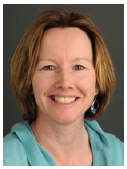By Linda Banks-Santilli with Eleonora Villegas-Reimers
If achieving the American Dream includes graduating from college, the experience for first-generation college students is becoming more like a nightmare. We live in an economy today that is forcing people to question the value of a college degree due to its cost. Over the last twenty-five years, tuition and fees have risen 587 percent for private colleges and universities and 683 percent for public ones. In addition, the cost of room and board has increased more than 60 percent in private and public colleges in the last twenty years. One-half of first-generation college students in America are considered low income and 72 percent work while attending college. This data has enormous implications for degree attainment, retention, and attrition.
Many first-generation students compare their entry into college with visiting a foreign country without a map or the language needed to be successful. Their experiences often mirror those of American immigrants. Inspired by my own background as a first-generation college student, I am conducting a study on first-generation students at Wheelock College where I teach. I sought the expertise of my colleague, Dr. Eleonora Villegas-Reimers, who herself is an immigrant. As co-researchers, our uniquely different backgrounds strengthen our interpretation of interviews and complement our data analyses. We have provided them here to further illustrate our connection with our first-generation students.
Characteristics of First-Generation Students
- Come to college with fewer Advanced Placement courses in high school, lower SAT scores, and having spent less time on homework than non-first-generation students
- Rank themselves lower than non-first-generation students in writing and math ability
- Work many more hours each week while enrolled in college than their non-first-generation peers
- Experience more challenges separating from their families of origin than non-first-generation students
- Have less disposable income for semesters abroad and service learning trips, trips home on weekends or between semesters, and for daily living expenses including books and computers
- Are less likely to engage in extracurricular activities on campus and are more in need of professional mentoring and leadership opportunities
- Rank themselves lower than non-first-generation students in assessments of self-confidence
- Describe themselves as “on my own” when it comes to navigating the financial aid process
Linda’s Story
A First-Generation College Student’s Perspective: The Power of Professional Mentoring in Helping to Change a Life

Linda Banks-Santilli, EdD, is an associate professor of Education at Wheelock College.
I was born into a working-class family in Cambridge, Massachusetts, home to Harvard and MIT, but ironically, neither of my parents knew much about higher education. My father was a Cambridge police officer and my mother worked at a bank. As a first-generation college student in the 1980s, the professional mentoring I received from a faculty member, who came from a working-class background herself, made a significant impact. She insisted I read the New York Times to improve my vocabulary and that I consider publishing my poetry. Once I became a young teacher, she encouraged me to explore other countries to “expand (my) world view.” Seeing what she had accomplished, I realized that the sky was the limit for me too, and that my background made me a stronger, better person. Over time, I redefined myself in ways that were uniquely different from my family of origin. Now, as an associate professor who has earned a doctorate, I realize the importance of advocating for my first-generation college students’ success.
Eleonora’s Story
An Immigrant’s Perspective: Trying to Understand Academic and Social Conventions of American Higher Education

Eleonora Villegas-Reimers, EdD, is an associate professor of Human Development at Wheelock College.
Although I am not a first-generation college student, I felt like one when starting graduate school in America. Being a student in the U.S. was a very different experience than what I had encountered in college in my country of Venezuela. I remember what it felt like trying to figure out what “normal” was regarding academic expectations and social conventions. I soon realized that the cultural practices and traditions of higher education in the U.S. are vastly different from those in Venezuela.
Academic expectations that were common in U.S. classrooms were new to me. For example, I understood how to write research papers, but I was not accustomed to including my voice in such papers. Being assessed by my ability to do both was new. In my previous experience, I was asked to write papers that included quotes and ideas presented by others, without a single personal opinion. I was not used to engaging in academic conversations with faculty outside the classroom or being invited to faculty dialogues that were not required. Understanding that these opportunities were considered part of my education was foreign to me.
Findings
Our research and experiences show it is important to identify first-generation students and design specific programs to support them, especially those whose academic pursuit is compounded by race, language differences, immigration status, and other restrictions imposed by American society. Economic conditions continue to challenge all college students. Because everyone deserves a fair chance at the American Dream, it’s imperative to keep the first generation front and center.
How to Support First-Generation Students
- Pair first-generation students with faculty advisors who were former first-generation students.
- Establish funding to support the specific needs of first-generation students (travel expenditures, books and materials, money, etc.).
- Create first-generation cohorts at Summer Bridge programs that focus on strengthening specific writing and math skills.
- Empower first-generation students to use their tenacity, drive, and determination as a source of strength.
- Designate sections of Freshmen Seminar and residence hall programs for first-generation students.
- Design programs for parents and family members to help them understand how to support their child’s college experience.







Thank you very much for this information